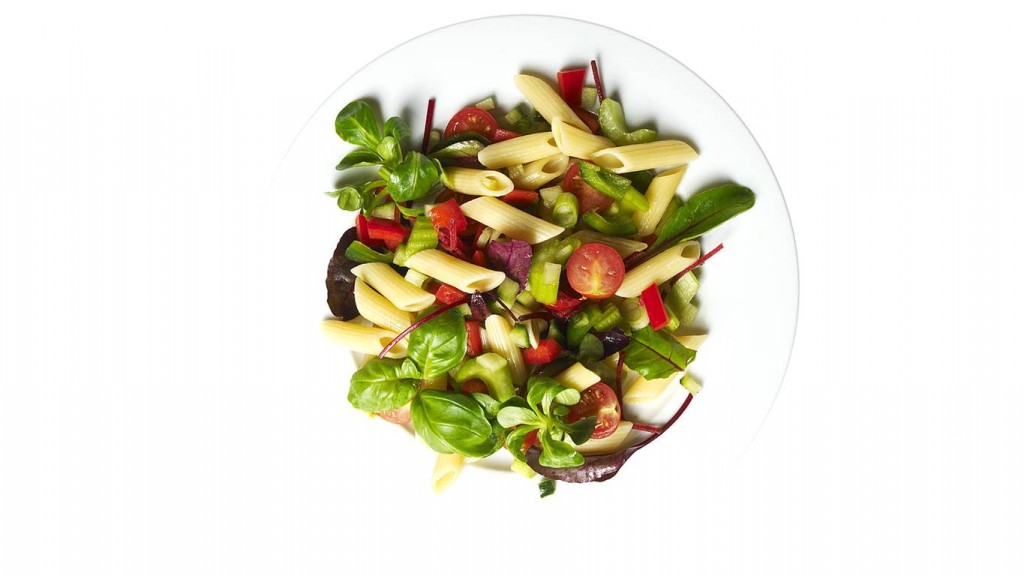If you’re watching your weight, the benefits of replacing some fatty and sugary foods with unsaturated fats from plant sources, sustainably sourced fish, starchy foods and fruit and veg are widely known - but are you aware that the same simple diet changes could also protect the planet?
Global food production is responsible for enormous emissions of climate damaging gases as well as taking up critical water supplies and physical space. Estimates suggest that food and drink production and distribution contributes 20% of UK carbon emissions every year.
There are plenty of climate impacts associated with food production - from the extra energy needed to grow crops outside their usual season to the fact that it takes more land to rear animals than it does to grow crops, through to the actual emissions from the animals themselves as they digest their food.
If we are, as a population, to do something to mitigate the effects on our climate, which could themselves have far-reaching negative health impacts, we need to start to consider the foods we eat much more carefully.
The climate impacts of food and its production are amongst subjects being debated today at a special event convened by the Food Standards Agency which will examine the future of food for the UK, from the public and policy maker perspectives.
And just a few weeks ago we published a blog outlining how important sustainable and nutritious catering is.
But what can we do at the personal level? How do we eat healthier and greener? Here are some suggestions:
1) Increase the amount of fruit and vegetables in your diet
Experts agree that if we all ate more fruit and vegetables we’d live healthier lives. Also by eating less meat and more veg as part of our meals we may collectively reduce the climate impacts that animal farming has, such as reducing water consumed by livestock and emissions from animals. The eatwell plate is a good place to start if you’re going to review the types of foods in your diet and proposes a diet more sustainable than that which many of us currently eat.
2) Try to buy food produced in season
Not only do these foods tend to be cheaper but they also require less intensive production methods. For example food grown in natural sunlight may be kinder to the environment than the same food grown, using different methods, in a cold climate. By buying more seasonal vegetables you may also find that you are eating more healthily too. There are lots of ways of incorporating seasonal and healthy foods into family favourites.
3) Plan what you eat in advance
Every year masses of food waste in the UK is sent to landfill. Some estimates suggest that every year the food sector in the UK generates 15 million tonnes of food waste. Planning what to eat in advance can minimise the amount of food you waste and save you money. There are lots of suggestions on the Change4Life website and on the WRAP website that will help you plan meals, eat more healthily, make the most of what you have and reduce waste.
4) Look at the packaging
Are there alternatives with less packaging? Lots of companies are doing what they can to minimise the packaging on their products or redesigning popular products so the packaging is at least easier to recycle. So try and do your bit by thinking about the things you buy regularly and finding out if there are eco-friendly alternatives with less or better designed packaging that can be recycled. Also don’t forget to keep your ‘bag for life’ to hand when you go shopping – not only will it save you the odd 5p but it means you’ll be using less plastic.
There are lots of other things out there that you can do to mitigate the environmental impact of your diet and if we all start thinking more about what we do perhaps we can all eat our way to a better world.


2 comments
Comment by Zuzana Cabejskova posted on
Louis, thanks for this actionable article.
Packaging in not always mentioned in the debate on sustainable eating, yet it is quite ridiculous sometimes to see how many layers of plastic you bring your food in...
I'd like to add that one obvious yet heavily overlooked decision we make everyday relates to drinks. I always recommend tap water as it's environmental impact is lower by 1000-times and more when compared to bottled beverages. After all, we drink 2l liquids a day and if one gets all that from 500ml bottles, that's a lot of avoidable waste.
As a consultant to Water UK, I developed a web page for water and health, which contains a lot of useful information on the topic of healthy hydration and has some FAQs about tap water. http://www.water.org.uk/consumers/water-and-health
I hope this helps widen the scope of actions people can take every day to ease their environmental burden!
Thanks
Comment by Andrea posted on
Totally agree with you on tap water. The amount of plastic I must have saved, the money, and my kids' teeth by encouraging them to drink water most of the time is enormous. They're 6 and 9, and at home they've drunk water or milk most of their lives. We've just started to have hot chocolates now and again as a treat, they rarely have fizzy drinks and cordials are only bought to make up for daddy's spinning class.
We can still do better in other areas (my husband is very much a meat eater that struggles to go without) but we've made a pretty good dent in our contribution to not damaging the environment so far.